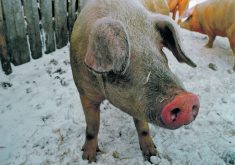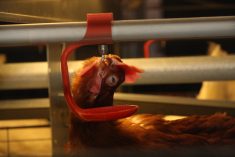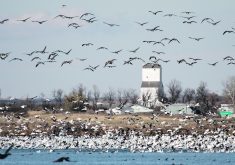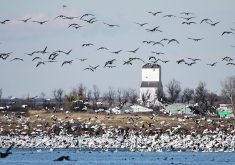Avian influence concerns are mounting as the Canadian Food Inspection Agency has reported the first case in a domestic pet.
The dog in Oshawa, Ont., was confirmed to have been infected and died from avian influenza after it was found chewing on a wild goose.
A necropsy conducted April 3 confirmed the cause of death.
Read Also

Crop quality looks good this year across Prairies
Crop quality looks real good this year, with the exception of durum.
The amount of avian influenza deaths in wild birds is also heightening concerns and scavenging animals, such as skunks and raccoons, have become infected with the virus.
CFIA stressed that the Ontario case was the only instance of a dog being infected with bird flu in Canada. It said infection rates in non-avian domestic pets were low, even as outbreaks continued in domestic and commercially produced birds throughout Canada and worldwide.
Risks to humans becoming infected with avian influenza were also said to be low. The chances of humans contracting it from pets were described as minor and there is no evidence of sustained person-to-person spread.
Pet owners are encouraged to take precautions, including not feeding their animals any raw bird meat, not allowing them to have close contact with dead wild birds and contact a veterinarian if they have questions about their pet’s health.
Wild foxes in Ontario, Quebec and British Columbia have been found with the virus. Quebec has also reported cases in seals, dolphins and black bears.
So far this spring, four commercial operations in Quebec have reported infections with two more in southern Ontario.
Since the beginning of 2022, more than seven million birds have been culled nationally.
Contact alex.mccuaig@producer.com


















